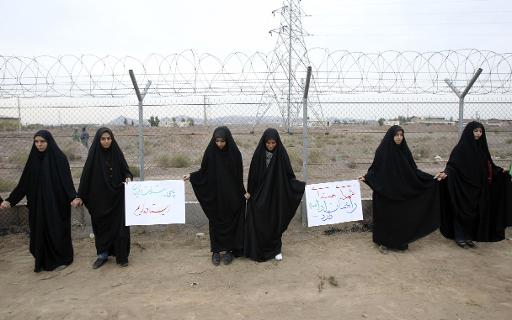ROME – Iran on Tuesday voiced optimism on a nuclear deal ahead of talks in Geneva but accused Israel of trying to sabotage them and of stoking Mideast tensions, following bomb attacks on its embassy in Beirut.
"I think there is every possibility for success," Iranian Foreign Minister Mohammad Javad Zarif, Iran's top nuclear negotiator, said after meeting his Italian counterpart Emma Bonino in Rome.
"I go to Geneva with the determination to come out with an agreement at the end of this round," Zarif said.
But he said Israel was trying to undermine the talks, after an Iranian foreign ministry spokeswoman accused Tel Aviv of being behind the attacks on Iran's embassy – a charge immediately denied by Israel.
The explosions killed at least 23 people. The attack was claimed by an Al-Qaeda-linked jihadist group.
Zarif said the attack was a symptom of rising extremism which threatened to move beyond the Middle East.
"Once we see a flare-up of the tension that is boiling in Syria there will hardly be a possibility of stopping it at the Syrian border, or even in the Middle East," he said.
Zarif did not repeat the claim against Israel but said: "We have reason to be suspicious of every move they make."
Referring to the nuclear negotiations, he added: "They have been trying so hard to torpedo the process."
Fresh talks with the United States, Britain, France, China, Russia plus Germany – the so-called P5+1 – over Tehran's nuclear programme were due to start in Geneva on Wednesday.
International powers aim to convince Iran to roll back work that they suspect is masking a military nuclear drive. In exchange, they are offering relief from sanctions.
US State Department spokeswoman Jen Psaki said the talks were "the best chance we've had in years, if not decades, to move this process forward."
But US President Barack Obama struck a more cautious tone, refusing to say a deal was within reach.
"I don't know if we will be able to able to close a deal this week or next week," Obama said at a Wall Street Journal CEO forum, insisting any relief from crippling international sanctions that Iran could expect under an interim pact was highly limited.
But boosting hopes on the eve of the talks was an announcement from London that David Cameron on Tuesday had become the first British premier in more than a decade to telephone an Iranian leader.
During their conversation, Cameron and President Hassan Rouhani agreed "it was important to seize the opportunity presented" by the next round of talks in Geneva, Downing Street said in a statement.
Cameron also urged Tehran to address global concerns over its nuclear programme, the statement added, "including the need for greater transparency."
Earlier on Tuesday, Zarif sought to reassure a foreign audience by posting his first-ever video statement on YouTube, which is blocked in Iran.
"For us Iranians nuclear energy is not about joining (a) club or threatening others," he said in English in the video, which began with calming music.
It is about "diversifying our economy, about stopping the burning of our oil, and about generating clean power."
Human chain at nuclear site
Newly elected Rouhani, seen as a relative moderate, has raised hopes for an end to the decade-old standoff. But a previous round of talks earlier this month ended with no agreement despite high hopes of a deal.
Years of US and EU sanctions have more than halved Iran's oil sales and crippled its economy. An accord in Geneva would be a major breakthrough after years of tense brinkmanship and failed diplomatic initiatives.
In Iran, hundreds of student protesters, in the presence of lawmakers and senior officials, formed a human chain around the Fordo nuclear site in support of the government, according to the Mehr news agency.
Foreign media were not allowed to cover the event.
Fordo is a fortified nuclear enrichment facility with nearly 3,000 centrifuges under a mountain near the holy city of Qom, about 150 kilometres (90 miles) south of Tehran.
Israel and Western powers have demanded its closure.
Both the United States and Israel have warned they will take military action if necessary to stop Iran starting a nuclear arsenal.
Hardliners in the US and Iran, as well as Israel, will be watching the upcoming negotiations with a sceptical eye.
Rouhani, who was elected in June and took office in August, also risks losing the backing of supreme leader Ayatollah Ali Khamenei if his diplomatic "charm offensive" fails to bear fruit soon.























































